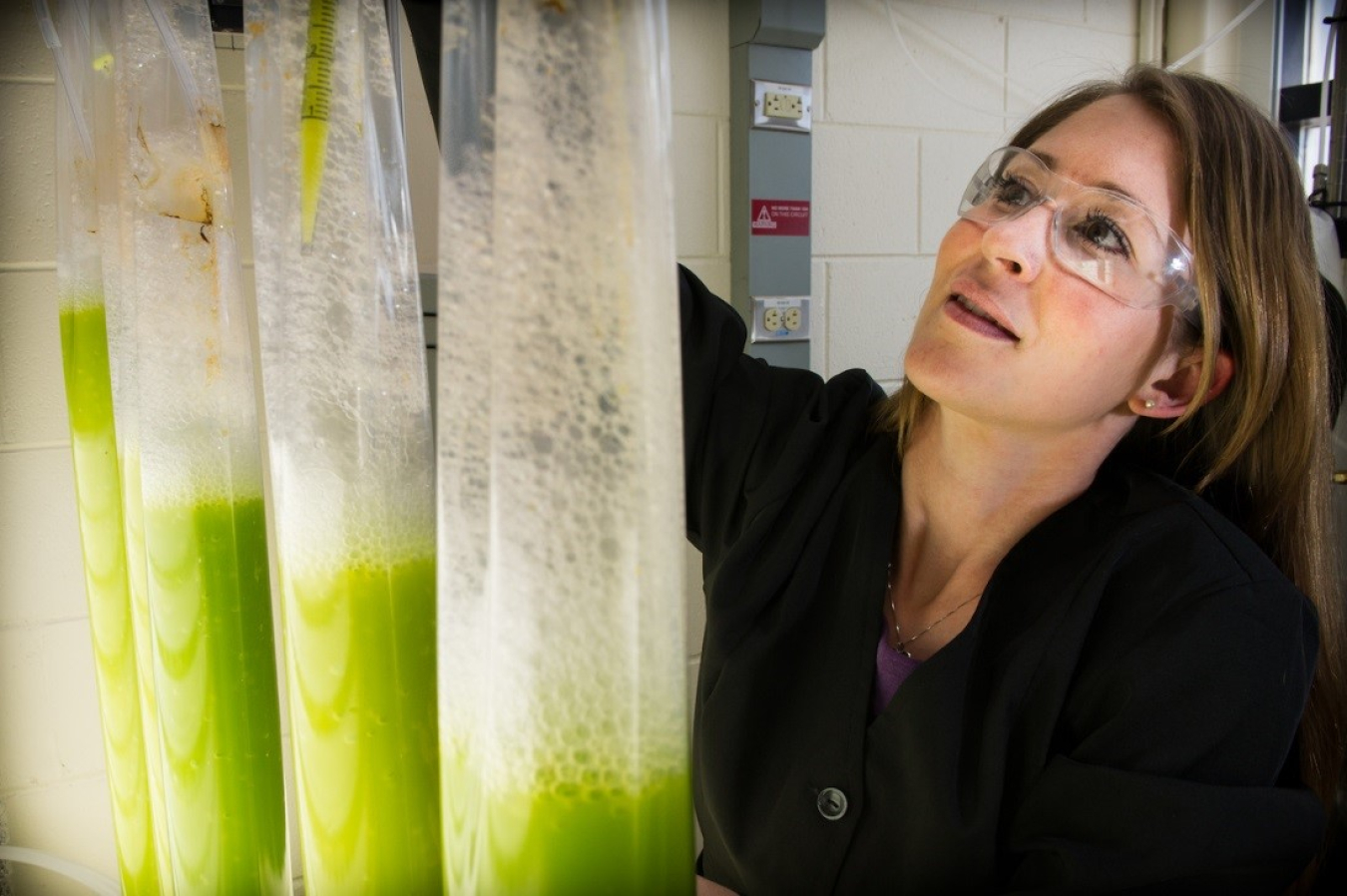
Photo courtesy of Dennis Schroeder | National Renewable Energy Laboratory.
The job of chemical/biological engineer trainee is an entry-level position in bioenergy, in the engineering and manufacturing career sub-sector. Job seekers with engineering and manufacturing backgrounds or students studying engineering could consider this type of entry-level bioenergy job.
Chemical/biological engineer trainees work under the supervision of senior engineers and researchers to perform professional engineering and scientific work involving chemical and biological processes utilized by the bioenergy industry. People in these positions may hold internships or entry-level jobs in bioenergy chemical or biological engineering.
Chemical/Biological Engineer Trainee
| Alternate Title(s) | Biochemical Engineer Trainee; Biochemist Trainee; Physical Scientist Trainee |
| Education & Training Level Description | Bachelor’s degree in Chemical, Biological, Agricultural, or Environmental Engineering, Biochemistry, Microbiology, Physics, or related field. |
| Experience | 0–3 years |
| Job Skills |
|
| Job Profile | A critical goal for the bioenergy industry is to develop commercially viable and sustainable technologies for converting biomass feedstocks into finished liquid transportation fuels (e.g., renewable gasoline, diesel, and jet fuel) as well as bioproducts (chemicals and materials) and biopower. With a strong foundation in chemistry, the biological sciences, and process engineering, biological and chemical engineers are in a unique position to deliver the key innovations that will drive the bioenergy industry forward. Biological and chemical engineers apply their knowledge and understanding of the principles of biochemistry, cellular biology, molecular biology, physics, and engineering to develop, design, optimize, and eventually scale up processes that use living cells, thermodynamics, chemical catalysts, microorganisms, or biological molecules (e.g., enzymes) for the production of biofuels and bioproducts. Critical advances in conversion technologies can take the industry from the research stage to pilot scale and eventually large-scale commercialization. Closely related to biological engineering is the equally important field of agricultural engineering. Individuals within this specialization apply their knowledge of biology, genetics, horticulture, natural resources, and crop science to enhance the productivity of biomass feedstocks and design agricultural systems that protect natural resources. Agricultural engineers can also help develop technologies for the cost-effective harvest, collection, preprocessing, storage, and transport of diverse biomass resources. At the entry level, chemical or biological engineer trainees work under the supervision of senior engineers and researchers to perform professional engineering and scientific work involving chemical and biological processes utilized by the bioenergy industry. Candidates must have completed a full 4-year course of study in a major field of professional engineering leading to a bachelor's degree from a college or university accredited by the Accreditation Board for Engineering and Technology. Employers also value relevant experience gained through undergraduate capstone research projects, part-time employment, internships, or volunteer work. |
More Entry-Level Engineering and Manufacturing Jobs in Bioenergy
Related Bioenergy Career Resources
Bioenergy Career Exploration Wheel

